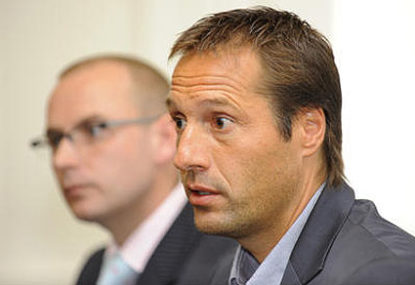Stars of the future: How Adelaide United built the best youth system in Australia
It was not too long ago that it was no guarantee that the best youth talents from South Australia would make their A-League debuts…

As I write this, the fifth round of the A-League is yet to be completed, but what we know for certain is the two teams managed by Dutchmen will be occupying the bottom two spots of the table by round’s end.
After last night’s 1-1 draw between Adelaide United and Melbourne Heart at Hindmarsh Stadium, fans of both clubs will be pondering whether their respective teams are set to stay anchored at the bottom of the A-League table for the rest of the season. But, it was not supposed to be this way.
You don’t need the modern football fetish of stats and über game analysis to understand why both Rini Coolen and John van’t Schip are struggling. All you need to know is that both have failed to apply two different schools of Dutch football philosophy effectively.
Let me explain.
Rini Coolen’s Adelaide United does not attempt to play Total Football. Coolen comes from the pragmatic school of Dutch coaching where it’s all about getting the result. Australian fans will be familiar with this after Pim Verbeek’s tenure as manager of the Socceroos and by watching van Marwijk’s Holland in the 2010 World Cup.
This requires structured, disciplined football, relying on quick counter attacking and strong personalities. Coolen’s team carried this out to great effect last season because he had the vision and technique of Marcos Flores and the blistering pace of Mathew Leckie at his disposal. They caused havoc to opposing defences and up front Van Dijk feasted on the chaos.
Going into this season Adelaide United looked strong on paper based on their activity in the transfer market. It was no surprise that football pundits across the land had them penciled in for a top two finish, but in reality none of the new players have an X factor that his type of football requires.
Coolen’s challenge is to bring unpredictability to his attack and to keep his side disciplined, which he very well knows is a much more difficult proposition when the results aren’t going your way.
The honeymoon is over with Rini and Adelaide United. Now, the pressure is on to maintain the relationship.
Meanwhile, over at Melbourne Heart the Total Football revolution promised by John van’t Schip is threatening, yet again, to fail to take off.
As a disciple of Rinus Michels and Johan Cruyff, you would expect van’t Schip to be familiar with the commandments of Total Football. Put very simply, Heart are trying to play like Brisbane Roar, but failing due to limitations with their squad. Even with the personnel changes between seasons, they have struggled to play this difficult system, where the team is expected to control the game.
Yes, most people are aware that Heart, like Brisbane, are top of the pops when it comes to passing stats, but unlike the Roar, not many of these passes are into the dangerous areas that unbalance and pull apart defences.
Johan Cruyff famously said, “Speed is often confused with insight. When I start running earlier than the others, I appear faster.”
This gets to the crux of what makes Brisbane’s football effective and Heart’s to appear stagnant. Brisbane players are so well schooled they not only move quickly to make space to accept a pass, but they also move early. As a result they produce football that is fluid, synchronous and very easy on the eye.
When it comes to defending, Rinus Michels wrote, “you must never play 4-3-3 if you do not have fast defenders who excel in one on one duels and who are exceptional in the positional play to dominate large spaces.”
Reading this you can understand why Colosimo was out of favour with van’t Schip but that does not excuse the prolonged obsession he had with playing a midfielder as a central defender. Put simply, the Matt Thompson experiment was an abject failure and, thankfully, it has been finally put to bed.
John van’t Schip’s challenge is to get his players to create better scoring opportunities by playing an effective passing game through earlier movement and better understanding.
Defensively, the future looks bright with Hamill and Good promising to become a formidable defensive pairing, but they are a work in progress and the introduction of Adrian Madaschi will provide cover.
Overall, Heart’s recruiting has been hit and miss. A fit Fred will add energy and creativity to the midfield, just like Mitch Nicholls does for Brisbane, but, what they they crucially lack is a central striker of Berat Berisha’s quality.
The brutal truth is that only one of Heart’s players could walk into the Brisbane XI and that is Mate Dugandzic. This is how much they have to improve both collectively and individually.
The Heart realize they need to get traction in the Melbourne market. They need to give potential red and white fans a reason to watch them and that means creating their very own bandwagon through positive results. The club has only won four of their 17 home games. This is the only statistic that really matters.
With van’t Schip in the second and final year of his expensive contract, failing to make the finals will see him leave these shores as a managerial failure.